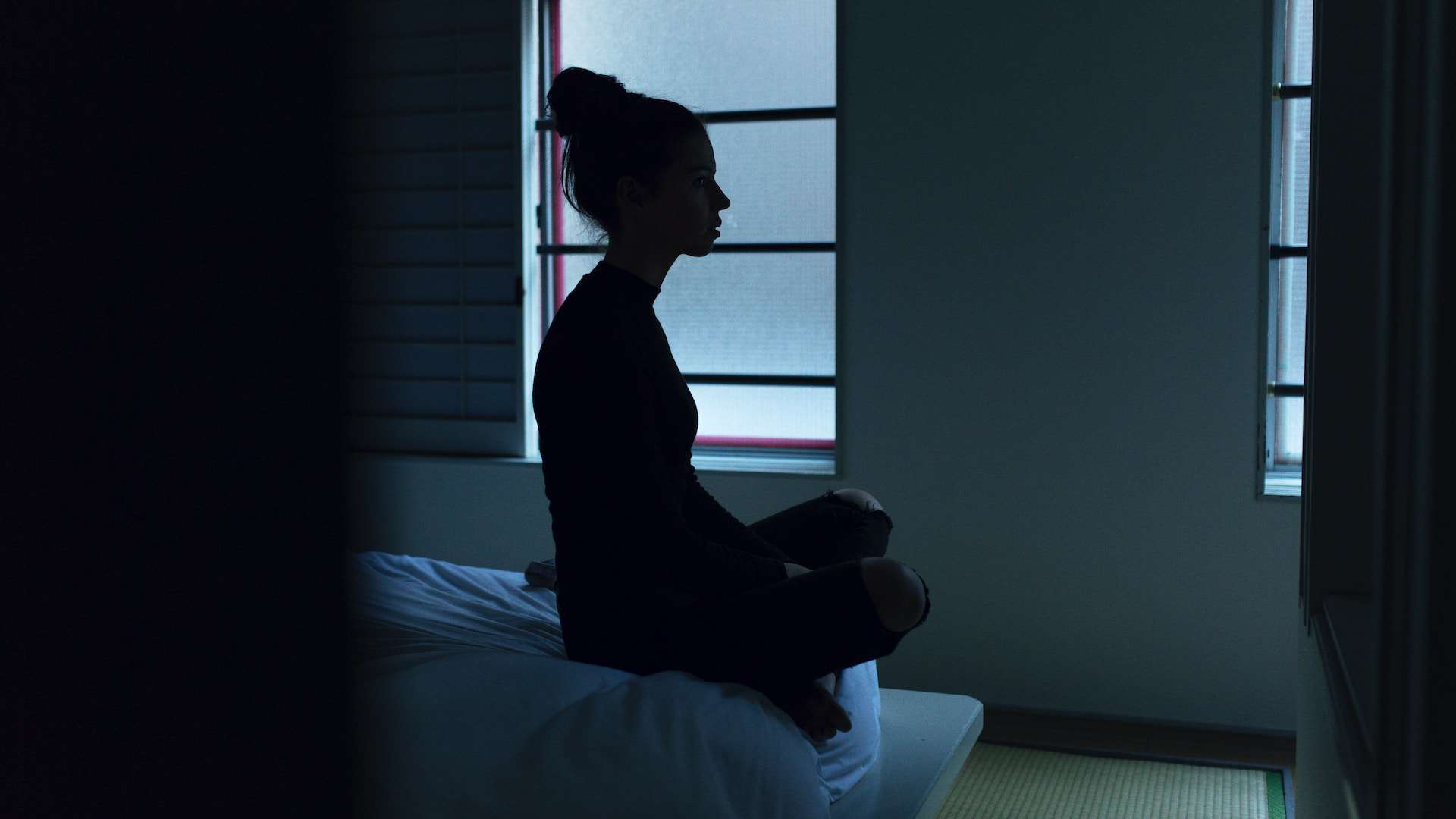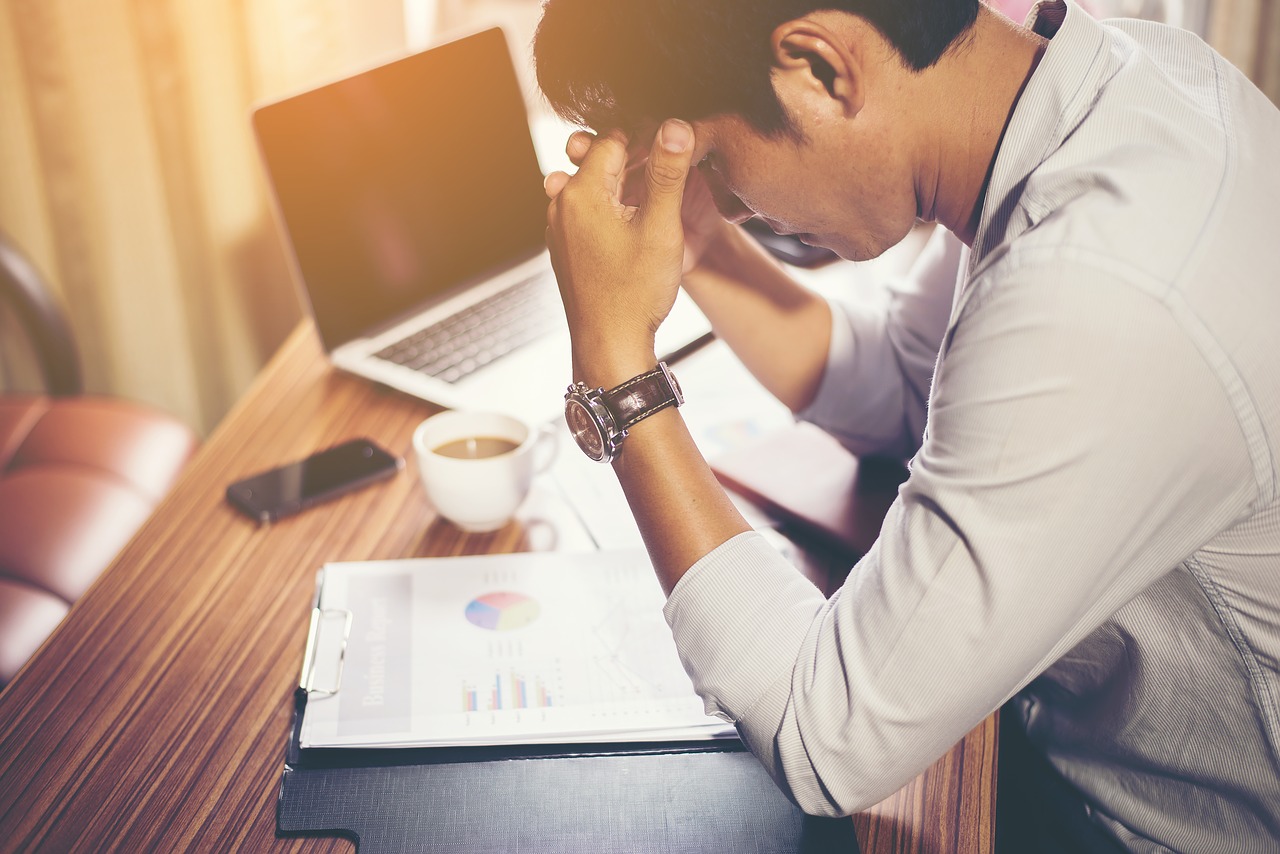
Do you find it difficult to sleep at night? Insomnia, come on, identify the cause early. Read more!
Photo by Ben Blennerhassett on Unsplash
Are you one of those people who takes a long time to fall asleep? Even though you've been lying in bed for hours, sleepiness never comes to you. The condition of having difficulty sleeping at night is very torturous because a person cannot get enough sleep which will have an impact on daily activities. According to insomnia experts, it is triggered by many things from habits that are often not realized, as listed below.
1. Erratic Sleeping Hours
_.jpg)
photo source: nationalgeographic.co.id
Did you know that irregular sleep times, always changing every day, over time have an impact on sleep duration? Just like eating, sleeping is a human need. People who sleep too much are no better than people who don't sleep enough.
Based on guidelines created by the American National Sleep Foundation (NSF), adults aged 18 - 25 years need 7 - 9 hours of sleep per day, and adults aged 26 - 64 years also need a fixed sleep duration of 7 - 9 hours. per day.
With a fixed sleep duration, the hormones that regulate appetite function will not be disturbed, so the risk of obesity will not haunt you. To set sleep duration, you can use the alarm. Set an alarm at least 30 minutes before bed to get ready, starting from brushing your teeth, listening to music, or reading a book to start closing your eyes.
Based on guidelines created by the American National Sleep Foundation (NSF), adults aged 18 - 25 years need 7 - 9 hours of sleep per day, and adults aged 26 - 64 years also need a fixed sleep duration of 7 - 9 hours. per day.
With a fixed sleep duration, the hormones that regulate appetite function will not be disturbed, so the risk of obesity will not haunt you. To set sleep duration, you can use the alarm. Set an alarm at least 30 minutes before bed to get ready, starting from brushing your teeth, listening to music, or reading a book to start closing your eyes.
2. Caffeine
_.jpg)
photo source: nationalgeographic.co.id
Even though you often hear that caffeine can make it difficult for someone to sleep, you still don't pay attention to it. According to experts, consuming coffee has more impact than just making it difficult for someone to sleep.
The caffeine in coffee can reset the body clock, also known as the circadian rhythm, which functions to regulate the release of melatonin (the body's sleep hormone). Melatonin levels themselves function to determine the body's natural time to sleep and wake up.
Half of the caffeine you consume can last 3 – 5 hours, while the other half stays longer, 8 – 14 hours. The impact of course varies depending on influencing factors, such as genetics, age, time of consumption, and habits of consuming caffeine itself. According to Prof. Drake from the Henry Ford Sleep Disorders and Research Center is better off not consuming caffeine-containing drinks after 5 pm to get a good night's sleep.
The caffeine in coffee can reset the body clock, also known as the circadian rhythm, which functions to regulate the release of melatonin (the body's sleep hormone). Melatonin levels themselves function to determine the body's natural time to sleep and wake up.
Half of the caffeine you consume can last 3 – 5 hours, while the other half stays longer, 8 – 14 hours. The impact of course varies depending on influencing factors, such as genetics, age, time of consumption, and habits of consuming caffeine itself. According to Prof. Drake from the Henry Ford Sleep Disorders and Research Center is better off not consuming caffeine-containing drinks after 5 pm to get a good night's sleep.
3. Cellphones or Devices
_.jpg)
photo source: www.express.co.uk
Some people choose to play with their devices while waiting for sleepiness to come, even though the LED (light emitting diode) light emitted by their devices has a serious impact on their sleep cycle. A study published in the medical journal BMJ Open through a survey conducted by 10,000 Norwegian teenagers in the productive age range, of 16 – 19 years, found that the longer you use a device before bed, the higher the risk of developing insomnia.
Using devices before bed can cause headaches and muscle aches due to electromagnetic radiation and inappropriate body posture. The aches and pains felt gradually become the reason a person stays awake at night.
To get better quality sleep at night, start reducing the habit of playing with devices before bed and replace it with other things such as writing a daily journal or reading a book.
Using devices before bed can cause headaches and muscle aches due to electromagnetic radiation and inappropriate body posture. The aches and pains felt gradually become the reason a person stays awake at night.
To get better quality sleep at night, start reducing the habit of playing with devices before bed and replace it with other things such as writing a daily journal or reading a book.
4. Excessive Naps
1_.jpg)
photo source: www.theodysseyonline.com
If not done excessively, napping has many benefits. One of them makes the body feel fresher after waking up from a nap. However, if you do it for too long, it turns out that naps can damage your sleep cycle at night.
Health reveals that a 45-minute nap functions to reduce high blood pressure while improving memory function. However, the effects of naps vary from person to person. Insomnia sufferers should avoid taking too long naps. If you feel sleepy, replace your nap with relaxation such as stretching or yoga for a moment to restore your body's fitness.
Health reveals that a 45-minute nap functions to reduce high blood pressure while improving memory function. However, the effects of naps vary from person to person. Insomnia sufferers should avoid taking too long naps. If you feel sleepy, replace your nap with relaxation such as stretching or yoga for a moment to restore your body's fitness.
5. Stress

photo source: pixabay.com
Worry, which can lead to stress, turns out to be one of the reasons why someone finds it difficult to close their eyes even though their body has landed on the bed. If your brain tends to ruminate on bad events that happen throughout the day to the point that they disturb your sleep, you certainly have to get rid of it by doing several simple things, such as knowing the source of your anxiety.
If you already know what makes you so anxious, write it down in a journal. Research shows that writing down all your worries can help clear your mind of negativity while improving sleep quality.
If you already know what makes you so anxious, write it down in a journal. Research shows that writing down all your worries can help clear your mind of negativity while improving sleep quality.
Tags
#Lifestyle
#Gayahidup
#Info
#Informasi
#Aboutdailylife
#Faktaseharihari
#Quickfacts
#Sekilasfakta
#Get
#To
#Know
#Causes
#Penyebab
#Insomnia
#Sejak
#Dini
#Didyouknow
#Tahukahanda
#Fyi
#Foryourinfo
#For-Your-Info
#Tidur
#Sleep
#Awake
#Bangun
#Pagi
#Malam
#Hari
#Howto
#Tips
#Alinear
#Indonesia
#Alinearindonesia
#Alinear-Indonesia

